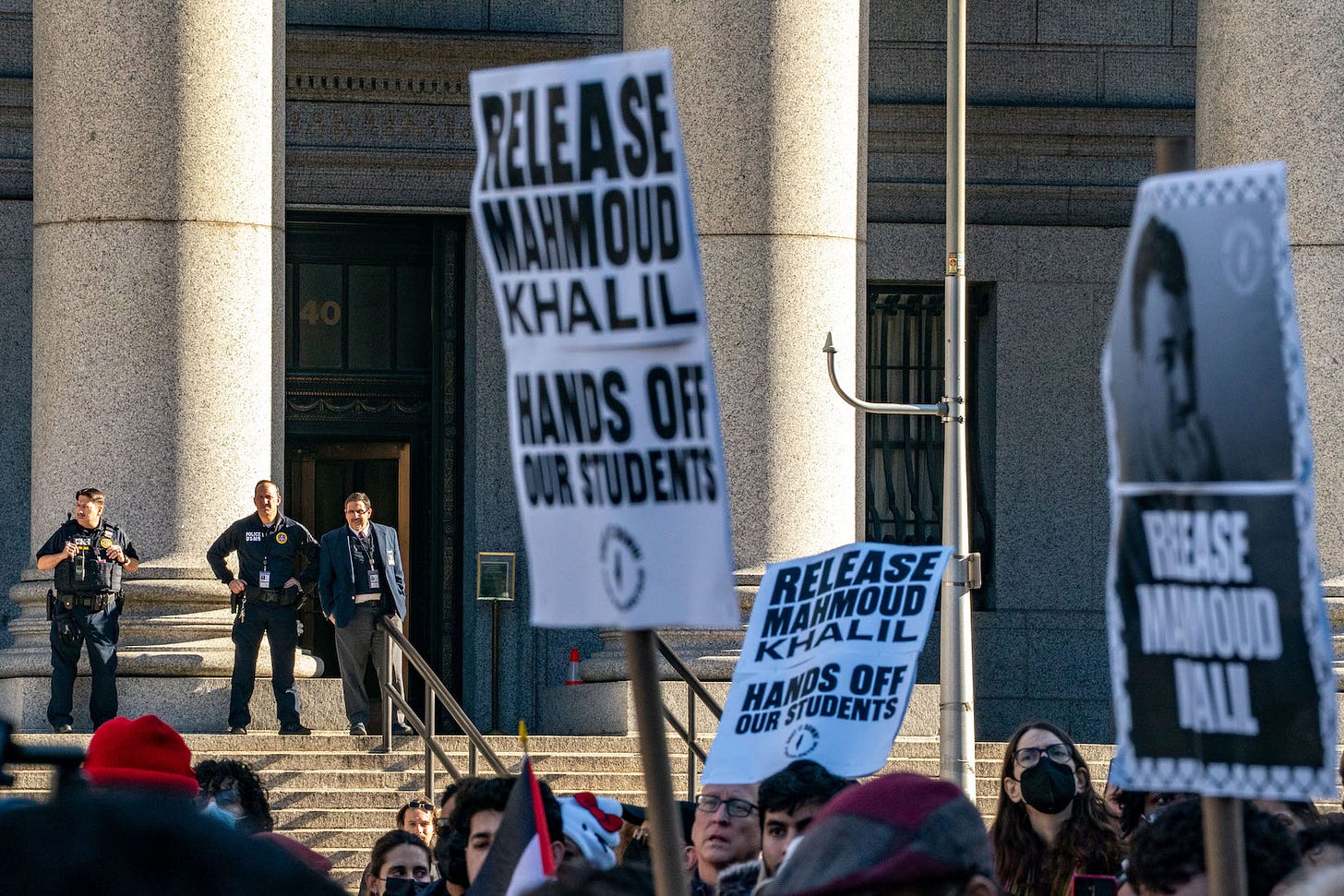Trump admin can't avoid First Amendment trial on student protesters
A federal judge kept a trial on track for July to determine whether he will block the Trump administration from retaliating against students based on speech.

Find out the breaking legal news in real time, right in your inbox.
The Trump administration failed on Monday in its effort to avert a trial next month to determine whether a federal judge should block the government from retaliating against pro-Palestinian students based on speech.
“This court has the authority to supplement the record,” U.S. District Judge William Young found toward the end of a roughly hourlong hearing.
That determination means that a federal courthouse in Boston will hold a trial starting on July 7 at 9 a.m., when academic freedom groups led by American Association of University Professors will ask the judge to find the Trump administration’s policy violates the First Amendment. The Knight First Amendment Institute at Columbia University represents the plaintiffs.
The defendants in the case are Secretary of State Marco Rubio, Homeland Security Secretary Kristi Noem, Immigration and Customs Enforcement Acting Director Todd Lyons, Donald J. Trump, and the United States government.
Judge Young allowed the academic freedom groups to prove their claims of retaliation for free speech.
At one point, the judge hypothesized a “smoking gun” statement could involve a senior Trump administration official outlining a plan to revoke visas and deport green cards with the explicit goal of stifling the protests.
Such an official might hypothetically say of the student protesters: “They’ll quiet down then.”
The judge noted that he has not seen alternative explanations for the cases on the record before him.
"I would be curious to find out — I still am — if there’s something more," Young said.
Multiple federal judges have found that the Trump administration likely violated the First Amendment rights of individual students like Rümeysa Öztürk and Mohsen Mahdawi, but this is the first constitutional challenge seeking to block these enforcement actions on a policy level.
After issuing his ruling, Judge Young said that he hoped the discovery process would shed light on some of the questions that he had regarding the arrests in those cases.
“Why so many officers? Why masks? Is it protocol to handcuff people with their hands behind their backs, maybe?” Young asked, indicating that the government must produce any “manual” that would justify such actions.

Young, an 84-year-old jurist appointed by Ronald Reagan, said that the manner of Öztürk’s arrest seemed unusual to him.
“I’m not accustomed to … law enforcement officers without identification, approaching individuals masked and you know, not having a warrant or being able to display a warrant, having only an administrative order,” he said.
The government admitted that it had no warrant to arrest Columbia University student Mahmoud Khalil.


